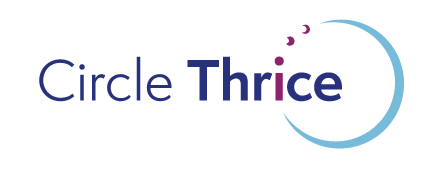OK, for those of you who work for a company, does your company have a mission statement? Do they have values? Do they articulate some annual or quarterly vision? (Quick Googling is allowed here).
Odds are they do (this is what E-staff do on all those off-sites and retreats after all). However, odds are lower that you know what those things say. And even if you are familiar, those lofty sounding and buzzword laden statements may not have any discernible connection to or impact on what you do every day at work. This is super common by the way, and has been the case at most of the companies I’ve worked for. They can’t connect the dots between the strategic and the tactical. The strategy might actually make sense, but there’s no link to your actual work. And the values sound good, but the company may not live by them.
But we aren’t talking about companies here, we’re talking about your life. And in your life you can do better. You are your own CEO — who creates the strategy — and you are the worker bee too — who has to get up every day and live your life tactically. So how do you start? Let’s start at the top…
YOUR LIFE
Mission: who are you and what do you do with your life? What are you about? Try to keep this short — the shorter the better. It’s not a biography. Here’s a list of top nonprofit’s mission statements — worth a review as you think about your mission in life. For example:
Organizing enchantment at home and in the world
But you can’t use that one, it’s mine. Missions can change of course, but this should be a relatively stable expression of what your driver in life is (apart from whatever roles you might currently be playing).
Values: As you go through your life, what values do you use to guide you? What are your core principles? Love? Integrity? Honesty? Patience? They should be clear and short enough so that you can ask yourself at any moment “does this decision / behavior / goal align with my values?” Now, these should be your actual values and not just nice sounding things that you think signal the appropriate virtue. No judgement here. If your values include profit or pleasure, then that’s what it is. It’s not like anyone knows but you. If you are an adult, you likely already have core values, so this is a process of discovery rather than invention.
Vision: This one can be longer. Based on your mission and values, what is your vision for your life (remember, look where you want to go)? Bigger than just a single goal, this is an expression of the type of person you want to become. For example:
- Vision = I’m a well-educated person who has the opportunity to share ideas through writing and discussion
(goals might include “get masters degree” “start salon-style meetup” “find intellectual mentor”) - Vision = We have freedom from wage slavery and a sustainable way of living that gives us enough to be comfortable and to share with others
(goals could be “buy land” “grow food” “pay off debt”)
Who do you want to grow into? Where do you want to end up? What kind of life do you want?
Nice, huh? This is all very “up with people” and Tony Robbins and stuff. But there are a few caveats here. First, this process can be painful or difficult, digging up crap in your life or your past. But more importantly for us right now, none of this is very actionable — which brings us to the next step…
YOUR PROJECT
Ever set a goal and then meet it and realize that it wasn’t what you wanted after all? Or go though some long process and in the end you realize that you aren’t where you expected to be? When you create projects that aren’t in alignment with your mission, values, and vision, this is a real risk.
So, now that you know who you are and what you’re about, you can create projects that tie directly to the vision you have for yourself, your family, or your household.
Goals: So what is it you want to accomplish with your project? When you identify one or more goals, make sure they are in line with your vision. And then make sure you define how will you know when you are done. I’ve written about goals before, both classic (here and here) and agile (here). Those posts have a lot more detail and might be worth your time. Make sure they really are goals and not tasks in disguise.
Plans: How do you want to run your project? Will there be different phases? How often will you review your status? Are there repeating tasks? Will you involve certain people? Will you need a budget? I’ve written about planning extensively in the past, but my EBER project will be agile, so I recommend that for more information check out the first couple of posts in my agile series.
Deadlines: When will you meet your goals? Are there milestones before that point? Will you include regular checkpoints? This may be one of the simplest steps, but also the most important. So make sure your deadlines are realistic and logical and that you include plenty of interim steps for a long project.
Phew. More actionable than before, but we’re not quite done yet. Next time we’ll go full agile and talk about “epics”, “backlogs”, “stories” and a bunch of other jargon that helps you get shit done.




